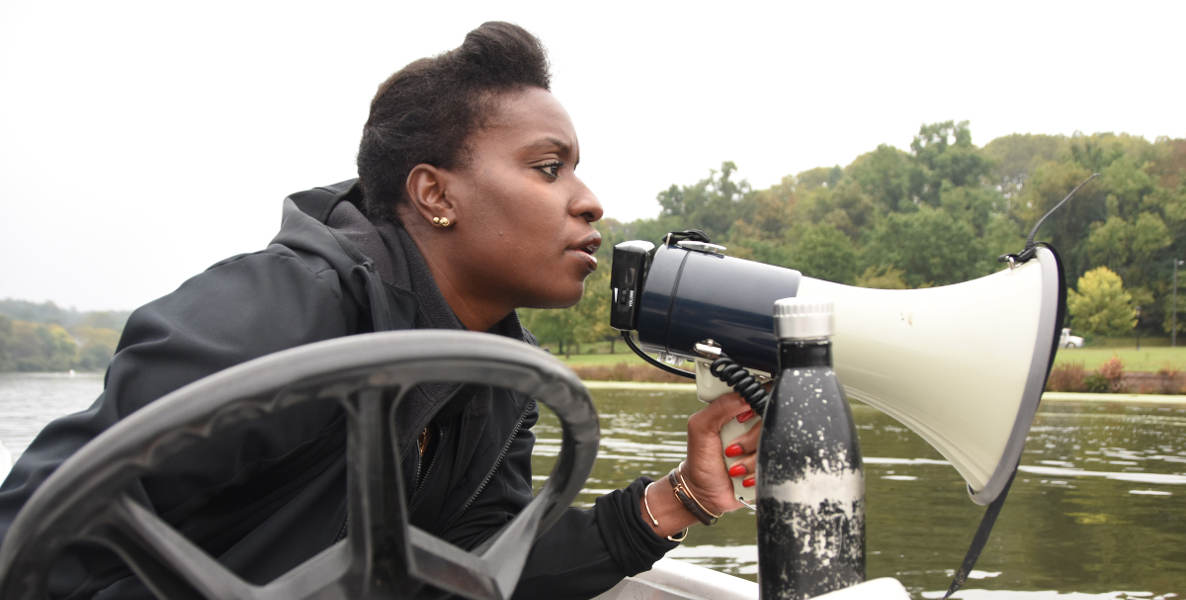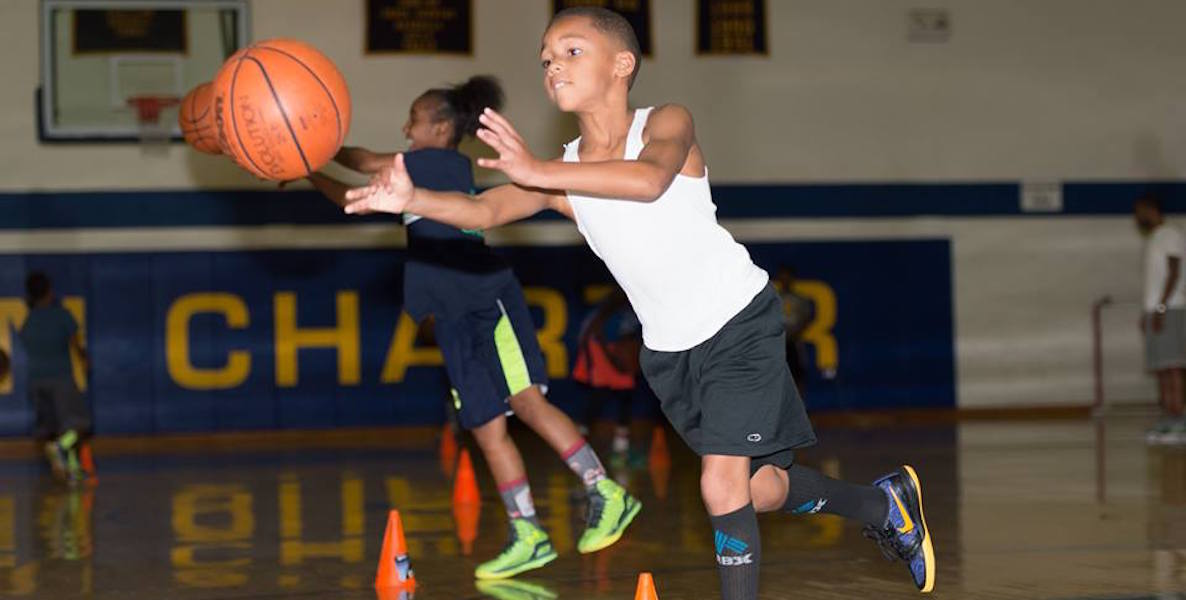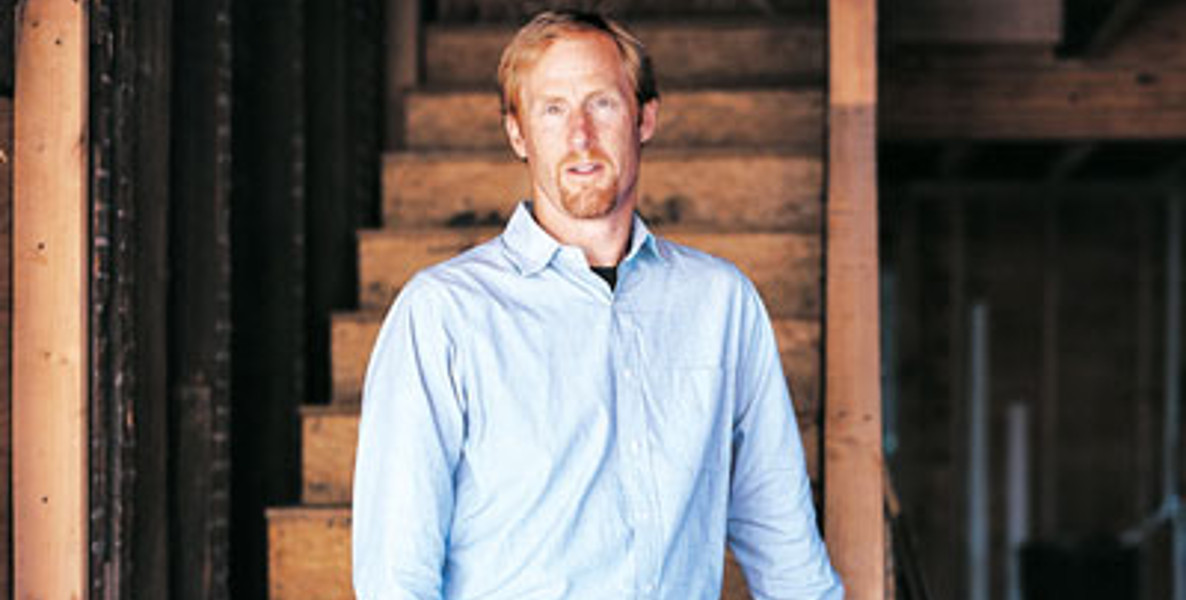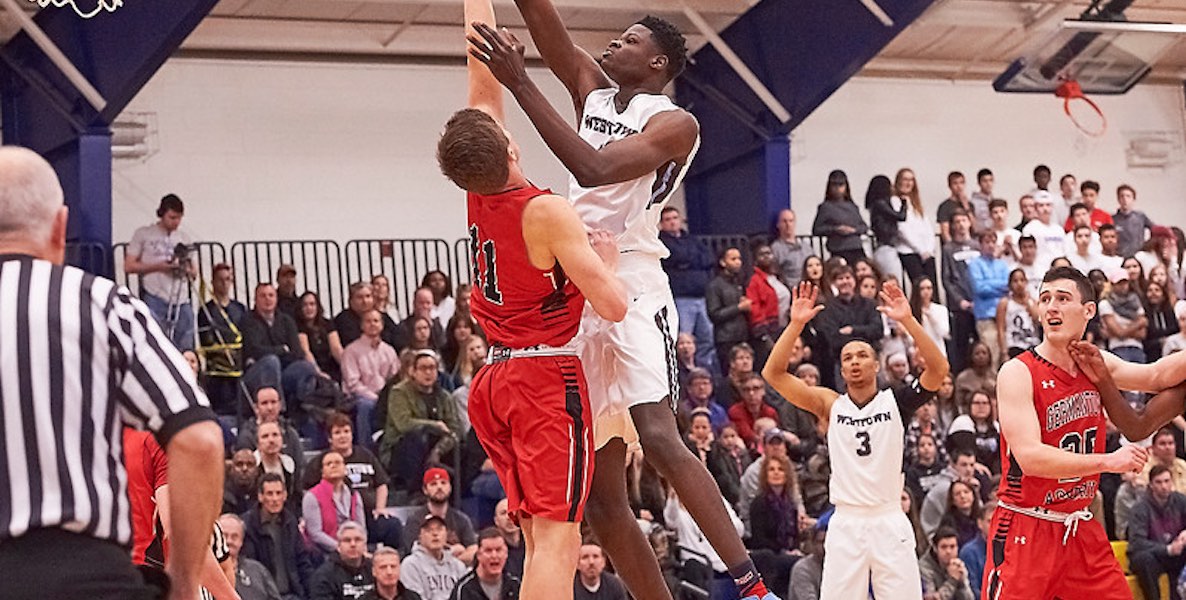Have you heard that the ratings for NFL games are way down this year? Down, as in double digits down. The league, under the watchful eye of Commissioner Roger Goodell, he of the $31 million annual salary, is taking steps to try and reverse the rapid slide, including trying to speed up games by airing less advertising.
Good luck. I suspect that sports fans are leaving the NFL—and much of pro sports, for that matter—for deeper reasons. Too often, the games no longer square with our values. This season, the NFL proved once again that it doesn’t get the seriousness of sexual assault, punishing New York Giant punter Josh Brown only when it embarrassingly came to light that his team and the league had known of his wife beating ways. Most NFL teams, despite the league’s $13 billion in annual revenues, still pay their cheerleaders below minimum wage. And a New York Times investigation documented the lengths to which the league lied for years about its epidemic of concussions, as did the 2013 Frontline documentary League of Denial: The NFL’s Concussion Crisis.
Long ago, our sports pages started reading like the police blotter, more rap sheet than boxscore. But, more recently, something else happened: Cheering for a professional sports team started to feel like rooting for big tobacco. The moniker “socially conscious sports fan” has become an oxymoron. You watch our games nowadays and feel complicit in exploitation born of crass commercialism. And the corruption of our sports has trickled down; college basketball and football are as corroded as the pro leagues. Every time a dominant NCAA basketball team graduates all of 8 percent of its players, as the University of Connecticut did during a championship run a few years ago, every time boosters masquerading as local authorities let varsity athletes accused of rape escape justice … you ask yourself: Just what am I cheering for, anyway?
I’m a long suffering fan of the Philadelphia 76ers. They’ve inflicted enough pain on the court of late, but, hey, I’m from Philly … suffering through the basketball stylings of Robert Covington is what we do. But significant insult was added to that injury when the team, with nary a note of protest from area media, took some 250 local jobs out of the Philadelphia economy and moved their headquarters to Camden. That’s something like a $2 million annual hit on the city. When, earlier this season, the team refused to let a young African-American singer perform the national anthem because she was wearing a “We Matter” t-shirt, I felt like I could no longer compartmentalize my fandom away from my progressive values. I needed a new hoops team.
Thankfully, there’s one right in our own backyard. For the last few years, I’ve been attending the basketball games at the Westtown School, a high academic Quaker day and boarding school near West Chester. There, I see great hoops performed by tomorrow’s collegiate and NBA stars, but I don’t feel like I have to check my worldview at the gym’s door. That’s why I’m helping to produce a documentary on Westtown and the meaning of its nationally-ranked basketball program. Because they prove that the ancient Greeks, with their emphasis on the goal of kalokagathia—bodily and moral and intellectual excellence—were onto something: That athletics are an intrinsic part of academics and a way to discover things about oneself.
Berger has told his kids that if any player asks how many points he scored, that kid is going to run suicide sprints at the next practice. The goal of coaching, as Berger sees it, has nothing to do with drawing up plays on a chalkboard. It’s counteracting all the me-first messages kids get in our culture.
The coach at Westtown is 49-year-old Seth Berger, who penned a widely read open letter to Donald Trump for The Citizen in November. Berger, fresh out of Wharton in the ‘90s, founded the groundbreaking basketball apparel company And1 and sold it for millions by his mid-thirties. His partners all went on to start other innovative businesses, but Berger realized that what made And1 a success was not his business acumen so much as his innate understanding of his consumer: Hoop-obsessed teenagers, not coincidentally an apt description of Berger’s formative years. He decided he wanted to help turn boys into young men by instilling values and developing character. So he bought a bunch of coaching DVDs and, for all of $4,500 a year which he donates back to the school, he became the coach at a sleepy, high academic Quaker boarding school with no basketball program to speak of.
Fast forward 10 years and Berger has used the same team-building skills that built his company to turn Westtown into a national basketball powerhouse, currently among the top-ranked in the nation. On his team, there’s 6’11” center Mo Bamba, projected to be one of the top picks in the 2018 NBA draft; 6’8” point guard Cam Reddish, projected to be one of the top picks in the 2019 NBA draft, and at least two other can’t miss college stars with pro possibilities.
More important for a recovering progressive sports fan, though, is the type of men these kids are becoming. Bamba may very well spend his one-and-done collegiate year at the likes of Kentucky or Duke, but he’s also actively considering becoming the first ever Harvard one-and-done; he speaks of the opportunity he has to redefine what it means to be a scholar-athlete, and about how, when he does make it big, he has ambitious plans to build a state-of-the-art rec center with academic services for young boys and girls in his hometown of Harlem, New York. And Reddish spends 6 to 9 a.m. in the gym even on game days—while maintaining high grades. All Westtown players, like every other student, hold on campus “work study” jobs, so there’s Mo Bamba slopping cafeteria food at lunchtime, next to a 5’2” sophomore girl. They all work the land on the campus’ farm. And if one has a paper due tomorrow, it’s a no-brainer for Coach Berger: No practice today. Do your paper.
Honestly, the games are great—I swear, the Westtown starting five (6’11”, 6’9”, 6’8”, 6’8” and 6’7”) would give some college teams a competitive scrimmage—but what’s truly inspiring is that Berger is showing that high academics and great athletics need not be mutually exclusive. This isn’t the crappy, earthbound, lily-white three-man weave ball of the Ivy or Patriot leagues—it’s high-flying, slam-dunking hoops performed by smart, joyous kids.
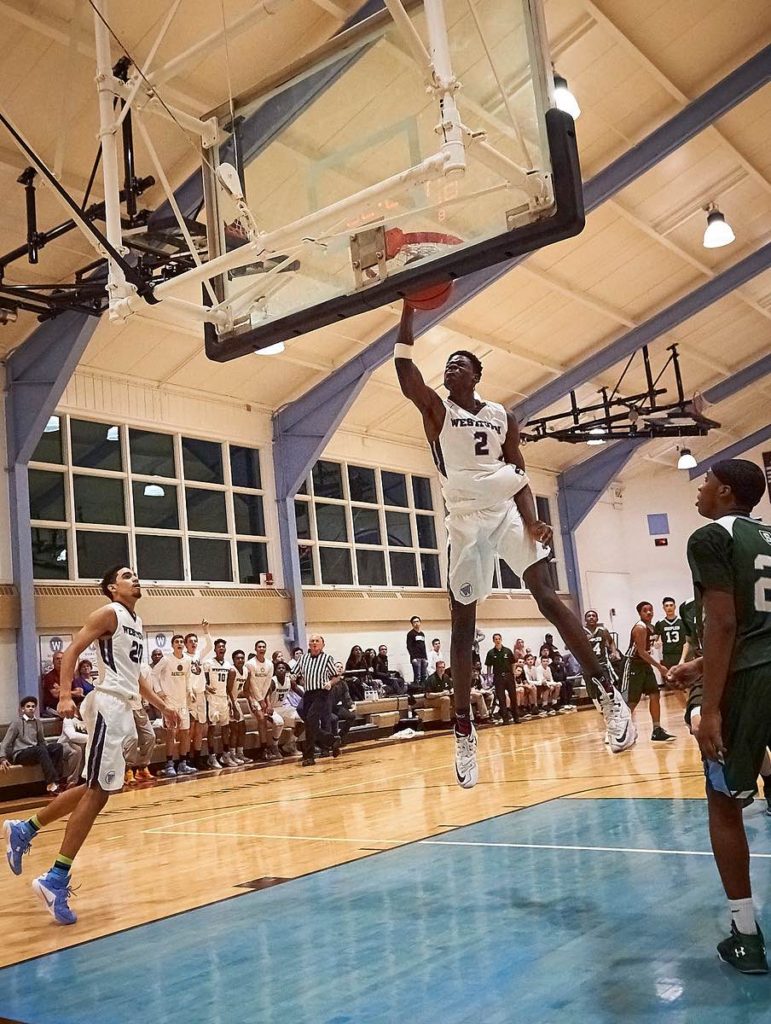
The pressure on them can be enormous. What are the odds that these prodigies emerge unscathed from the degree to which youth sports has been professionalized? Berger’s players have to size up AAU coaches, college recruiters, and media types—all wanting things from them—and that doesn’t even touch on the pressure coming from parents who unwittingly teach their children how to be selfish.
“When a kid comes home from a game, you hope the parent asks, ‘How’d the team do?’” Berger once told me. “But every parent always asks, ‘How many points did you score?’ It is never how many rebounds did you get, how many loose balls did you get, did you defend, did you communicate, were you yelling encouragement from the bench. It is literally the same question from every parent across the globe: ‘How many points did you score, how many goals, did you hit a homerun?’ Right?”
That’s why there’s no stat sheet at Westtown. Berger has told his kids that if any player asks how many points he scored, that kid is going to run suicide sprints at the next practice. The goal of coaching, as Berger sees it, has nothing to do with drawing up plays on a chalkboard. It’s counteracting all the me-first messages kids get in our culture. That’s why the back of Westtown’s warmup jersey reads “I Am For You”—a message from each player to one another—and why Berger often reminds his charges that, if you take out an “S” and one “T” from their school name, they’d self identify as “We Town.” To Berger, coaching—whether in a corporate setting or a gym—is all about establishing a culture that elevates “we” over “me.”
Don’t get me wrong; these are kids, not saints. There are still the usual rites of adolescent passage. But at least Berger and Westtown seem to deal with issues head on, and to find teachable moments in them. What I’ve witnessed at Westtown stands in stark contrast to the sports culture at large.
Take, for example, the fascinating Showtime documentary about our Sixers’ top draft pick, Ben Simmons, One and Done. In chronicling how Simmons went to Louisiana State University for a year, as per NBA rules that say players must be 19 and a year removed from high school before they can join the league—essentially making him a professional apprentice at no recompense—it is, rightfully, an indictment of collegiate exploitation. (No one prohibits a collegiate violin player from earning what the market can bear, after all.)
In the film, Simmons knows that he needs to achieve at least a 1.7 grade point average in his first semester in order to be eligible to play in his second. Once the second semester rolls around, he stops going to class, because he knows that NBA riches await.
More important for a recovering progressive sports fan is the type of men these kids are becoming. Bamba may very well spend his one-and-done collegiate year at the likes of Kentucky or Duke, but he’s also actively considering becoming the first ever Harvard one-and-done; he speaks of the opportunity he has to redefine what it means to be a scholar-athlete.
“I’m here to play, I’m not here to go to school,” he says. “I can’t get a degree in two semesters. It’s kind of pointless. I feel like I’m wasting time.”
Yes, the NCAA is a “joke,” as Simmons says, but his reaction to it is just as cynical as LSU’s using of him. After all, other high school one and done prospects with no interest in collegiate academics have opted to spend a year in Europe, getting paid to play ball. Instead, what we get from Simmons during his year at LSU is a troubling strain of anti-intellectualism, a refusal to consider that reading some books might ultimately be its own reward. There’s a touching moment in the film when Simmons’ mother, packing up his car and sending him on his way to LSU, tearfully tells him, “Be a good person.” Unbeknownst to Simmons, going to class—real classes—or just exploring on his own some of the transformative ideas resting on the bookshelves of the campus library might have been a way to honor his mother’s request.
![]() I know this because I shudder to think how I’d have behaved these last decades without the benefit of what I learned at a similar age. I still think of Immanuel Kant’s Categorical Imperative, which I sopped up in a sophomore philosophy elective, whenever I find myself in some messy moral space: “Never treat a person as a means to an end. Persons are always ends in themselves.” That’s a potentially life-changing way to be in the world that, it strikes me now, is not so dissimilar from Berger’s message to his Westtown players today.
I know this because I shudder to think how I’d have behaved these last decades without the benefit of what I learned at a similar age. I still think of Immanuel Kant’s Categorical Imperative, which I sopped up in a sophomore philosophy elective, whenever I find myself in some messy moral space: “Never treat a person as a means to an end. Persons are always ends in themselves.” That’s a potentially life-changing way to be in the world that, it strikes me now, is not so dissimilar from Berger’s message to his Westtown players today.
Those players are about to enter a world they are wholly unprepared for, which is why Berger’s wisdom is so needed. The problem isn’t our games; it’s what the intersection of our games with big business has wrought. Contrary to popular belief, our pop culture sports jones has long been a laboratory for progressivism and egalitarianism. Remember, the Civil Rights movement didn’t really being with Brown v. Board of Education; it actually started seven years earlier, when Jackie Robinson broke baseball’s color line. Opposition to the Vietnam War didn’t start with Eugene McCarthy’s and Robert Kennedy’s 1968 campaigns; it was actually Muhammad Ali’s “I ain’t got no quarrel with them Vietcong” public statements that began to turn the tide against a wrongheaded military action. In recent years, the historically homophobic sports industry has even embraced the coming out of NBA player Jason Collins and linebacker Michael Sam, and celebrated Caitlyn Jenner.
But, increasingly, it’s become harder to find such object lessons in our daily sports narrative. That’s why, many nights this winter, while the luxury suites bustle at Sixers games—complete with preferred parking and private entrances—you can find me in Westtown’s shoebox of a gym, watching great players play a game they love, discovering together the thrill of common purpose and shared adventure. This is what being a sports fan means, circa 2017: seeking out those sporting outlets that adhere to our values. It’s an added bonus if, as at Westtown, the quality of the hoops kicks the ass of your high-priced pro option, too.
Photos courtesy of Ed Cunicelli for Westtown School


